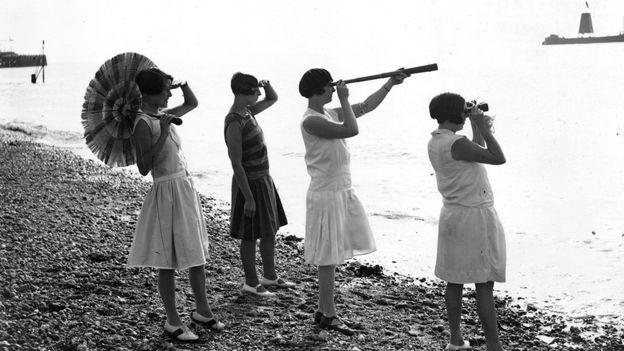This week's best things
New ways of interacting with history, AI-powered dance, what the 1920s can teach us about hope, the rewards of beta testing, 15% solutions, and someone discovering Radiohead for the first time.

My weekly round-up of a handful of interesting, thought-provoking, useful, or fun things that I've seen/listened to/read.
A New Age of Interacting with History: The Future is Borderless
An interesting interview with YuJune Park that looks at how "Legacy institutions are using technology to rethink how to engage and inspire us, creating truly borderless experiences. Museums and libraries are going through a rebirth, using their collections and archives in new ways for new audiences".
The interview cites a number of specific examples of "the best educational digital experiences [that] can promote active learning over passive consumption by interweaving content and interaction, past and present, and singular narratives to broader themes and perspectives. They help you see and experience a new perspective, challenging points of view and prompting you to reflect on how you see the world and where you sit in the history of ideas."

AI powered dance performance
This is a really interesting, cool and impressive video of a real-time generative dance experiment powered by Stable Diffusion.
I'm not going to be able to do a very good job of describing it so go and take a look for yourself.

What the 'future histories' of the 1920s can teach us about hope
A fascinating read from historian, Thomas Moynihan.
"As a historian who studies how worldviews transform and priorities alter as we learn more about ourselves and our place in the Universe, I'm interested in how people's perceptions of the future have changed over time. If we look back 100 years, how was tomorrow imagined back then? A century ago, there were dystopias and utopias, but many writers and thinkers also approached the future in other ways: with an open, nuanced and often playful perspective. And they did so despite the grave challenges they faced in their societies. What might we learn from these visions?"

The bravery (and rewards) of beta testing
A piece from the always excellent, Hilary Knight pondering the benefits of changing how we share work with audiences and invite them to engage with what we do.
"Getting people to put down their phones is a big ask. Essentially, it is a "threshold" problem; how do you entice someone to cross (in this case) an invisible threshold from their own familiar environment into a new one? It is a tacit invitation all cultural organisations make and many struggle with, and I wonder whether one way forward is to reframe it as a user experience issue."

15% Solutions
Spotted via Dr Carrie Goucher, a nice 'meeting structure' that encourages people to focus specifically on "What Each Person Has the Freedom and Resources to Do Now".

I Finally Get Radiohead
I stumbled across this video of a guitar teacher reacting to, and unpacking, Radiohead for the first time.
He did another Radiohead one straight after this which is almost as good.
There’s something really magical here, watching a real expert (and an enthusiastic one at that), encountering something so unexpected (in real time), and doing a really good job of explaining why it’s good (and strange).
It’s a great watch if you like music, music theory, Radiohead, or just an enthusiastic expert encountering something new and unexpected for the first time.




